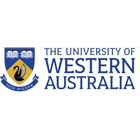Bachelor of Earth Sciences and Master of Oceanography
Bachelor of Earth Sciences and Master of Oceanography
The Bachelor of Earth Sciences is ideal for students who are curious about the complex system that comprises the solid Earth, its oceans and atmosphere, and the place of Earth in the solar system and beyond. The Master of Oceanography emphasises learning through practical work to gain knowledge and skills…
Categories
COURSE DESCRIPTION
The Bachelor of Earth Sciences is ideal for students who are curious about the complex system that comprises the solid Earth, its oceans and atmosphere, and the place of Earth in the solar system and beyond. The Master of Oceanography emphasises learning through practical work to gain knowledge and skills in oceanography encompassing scientific and engineering elements of dynamic coastal zones and seafloor geology.
Course structure
In your first three years, you will complete the Integrated Earth and Marine Sciences (extended major) and a semester of postgraduate study. You will then complete your selected specialisation in the Master of Oceanography.
Why study this course?
An Earth Sciences degree from UWA will provide you with knowledge and skills that are highly valued by employers of geoscientists.
Emphasis is placed on practical skills gained in the laboratory and through fieldwork, and can be applied to a diverse range of employment opportunities in industry, consultancies and government.
The Master of Oceanography is the only course of its kind in Australia and will leverage Western Australia’s position on the Indian Ocean and unique marine environment including pristine coastal areas and ocean processes shaped by the Indian and Southern Oceans.
You’ll learn to
Critically analyse the physical, chemical, geological and biological processes operating in coastal to deep marine environments
Apply practical skills needed for management of coastal and marine zones with critical social, economic and cultural value that are increasingly impacted by climatic changes
Use key knowledge and practical skills in the collection and interpretation of scientific data in both terrestrial and marine settings as well as data analysis and synthesis techniques
Develop strong interdisciplinary knowledge and technical skills to take advantage of diverse career opportunities in government, industry, consultancies and research institutions.
Career Pathways
There are diverse career opportunities in government, industry, consultancies and research institutions. The need for marine and coastal management, marine renewable energy, safe use of the ocean and aquaculture will require graduates with interdisciplinary knowledge of oceanography.
Career options include:
Oceanographer
Coastal Officer
Marine Consultant
Geologist
Geochemist
Geophysicist
REQUIREMENTS
Entry requirements may vary from country to country. Students are required to complete an international academic qualification equivalent to Australian High School (or equivalent).
English language requirements:
IELTS (academic): Overall minimum score of 6.5, no band lower than 6.0
TOEFL Internet-based TOEFL (iBT): an overall score of 82 or above with a minimum score of 22 in writing, 18 in reading, 20 in speaking and 20 in listening
Pearsons Test of English (PTE) (academic): An overall score of 64 with a minimum score of 59 in the speaking and writing sections, and no less than 54 in the other sections
EDUCATIONAL INSTITUTION
The University of Western Australia (UWA) is a proud member of the Group of Eight and is the only university in Western Australia to be ranked in the world top 100 universities (QS World University Rankings 2023).UWA’s main campus is located in Perth, Western Australia and is home to more than 23,000 students. Perth is Australia’s fourth-largest city with over two million people from a variety of cultures worldwide, a strong economy and vibrant lifestyle. Perth is one of the country’s most affordable cities, the closest major Australian city to Asia, and in the same time zone as most of Asia.

